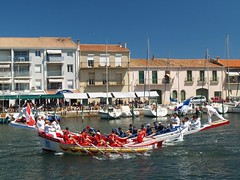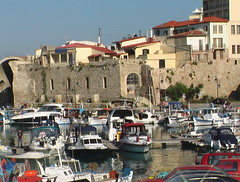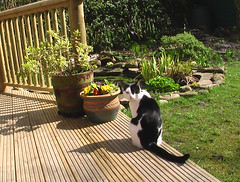I’ve just come across Jane Secker’s article in Serials 21(2) July 2008 p112-115. To quote from her abstract: This paper provides an overview of the University of London’s Libraries and Social Software in Education (LASSIE) Project, led by LSE and the Institute of Education. The project explored whether social software, or Web 2.0 technologies, could enhance distance learners’ experience of libraries. LASSIE also undertook five case-studies to explore in more detail: social software and reading lists; social bookmarking and libraries; podcasting and information literacy; blogging; and Facebook and libraries. It concluded that social software might be best utilized to enhance information literacy support for distance learners.

Water jousting, Meze, France









